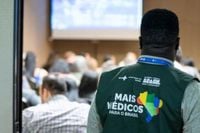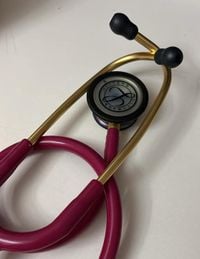The Brazilian Ministry of Health is making a significant push to enhance primary health care access in underserved regions with the closing of applications for the Mais Médicos program on Thursday, May 8, 2025. The initiative aims to fill 3,174 vacancies for doctors willing to work in priority, remote, and hard-to-reach areas where medical professionals are scarce or entirely absent.
Out of the total vacancies, 3,066 will be allocated across 1,620 municipalities, while 108 positions are specifically designated for 26 Special Indigenous Sanitary Districts (DSEIs). This move is part of a broader effort to strengthen health care services in vulnerable communities throughout Brazil.
In Bahia alone, the program has opened approximately 316 positions, with about 310 of those vacancies spread across 176 municipalities in the state. Additionally, six vacancies are set aside for the DSEI Bahia. The Ministry of Health emphasizes the importance of integrating these health professionals into the Family Health teams, which provide closer and more continuous care to local populations.
According to Alexandre Padilha, the Minister of Health, "There is an important connection between Mais Médicos, the strengthening of Primary Health Care, and our ongoing efforts to accelerate specialized care in the Unified Health System (SUS), which is one of the main concerns of our management." This integration is expected to facilitate better access to medium and high-complexity care for all citizens.
The selected doctors will not only serve in primary care but also play a crucial role in streamlining patient referrals to specialists, thereby reducing waiting times and enhancing the overall health care experience. The use of electronic medical records (e-SUS APS) will allow for the seamless sharing of patient information between primary and specialized care, which is essential for effective health management.
As the deadline approaches, the Ministry urges qualified candidates to apply, underscoring the eligibility criteria: applicants must be medical graduates from Brazil with a registration in the Regional Medical Council (CRM), Brazilian doctors trained abroad, or foreign doctors authorized to practice medicine outside their home countries.
The Mais Médicos program, launched to address the deficiencies in Brazil's health care system, particularly in rural and marginalized urban areas, has become a vital resource in combating health inequities. By attracting more medical professionals to these regions, the program aims to enhance the quality of care and ensure that all Brazilians, regardless of their location, have access to necessary health services.
In summary, as the Mais Médicos program closes its applications, the focus remains on recruiting skilled doctors to improve health care delivery in Brazil's most underserved areas. The initiative not only aims to fill immediate vacancies but also to foster a more integrated and efficient health care system that can respond more effectively to the needs of the population.





